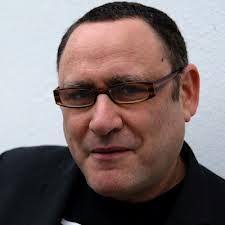Introduction by Gilad Atzmon:
In this BBC Hardtalk episode, Stephen Sackur challenges professor Ilan Pappe’s views.
As expected, BBC’s Sackur presents the hard core Right wing Zionist viewpoint. Unexpectedly, Sackur displays a wide range of knowledge about Israel and seems almost as knowledgeable as Ilan Pappe – a leading pro-Palestinian historian who has dedicated his life to studying the conflict and the Palestinian plight.
How is that possible? Is it because Pappe lacks erudition? Not at all, Pappe is an ethical human being and a superb scholar, he remains courteous and calm throughout the program. But Pappe attempts to argue his case with his hands tied behind his back.
The history professor is afraid to utter the ‘J word,’ he fails to analyze Zionism and Israel’s actions within the appropriate ideological, historical and cultural context and he refuses to question the true meaning of the Jewish State.
History is an attempt to narrate the past. A few brave historians aim for a consistent narrative that sets events within the appropriate context which includes ideology, culture and heritage. Most historians however, are engaged in the opposite: the active concealment of the shameful i.e. that which is better to shove under the carpet.
Instead of identifying the Zionist crime within the context of Jewish history and culture, Pappe attempts to isolate the Zionist crime by disconnecting it from Jewish history and continuum. Pappe injects the discourse with a dose of politically-correct terminology (such as colonialism, apartheid, etc.) that serves only to divert attention from the particular nature of Jewish nationalism. In practice, Pappe actually attempts to conceal that which is most shameful – the Jewishness of the Jewish State.
So, with eyes wide open the history professor marches straight into the ambush and finds himself engaged in an awkward, incoherent historical discourse that is restricted by parameters set by the very ideology he is supposed to untangle; namely Zionism and Jewishness.
Was the expulsion of the Palestinians premeditated? Do we really need the ‘personal accounts’ of Haganah elders to establish the fact that Palestinians were expelled? Are not five million Palestinian refugees who cannot return to their land due to the racist Israeli Law of Return a sufficient argument that Israel is an ethnic cleanser? Pappe, like every commentator on the subject, knows full well that it was premeditated but he struggles to produce an argument.
He finds it impossible to admit that the making of the Jews-only state was determined by the same Jewish exclusivism, ghetto-mentality, ethno-centrism and racial orientation that is symptomatic of all Jewish collectives whether Zionist or ‘anti.’
Ilan Pappe, who, more than any other historian, contributed to an understanding of Israel’s original sin of ethnic cleansing, fails to pinpoint exactly what it was that made the Jewish State into an ethnic cleanser. And the problem does not end with Professor Pappe
Within the Left and the progressive discourse, a clear distinction between scholarship and activism is missing. While activism is committed to social change, scholarship is inspired by the notion of truth. Pappe, like many other progressive thinkers, will compromise scholarship and even truth in order to deliver a ‘slogan’ or a populist ‘motto’ that may excite or appease the masses. Thus, the conquest of Palestine is simply ‘colonialism’ because to tell it for what it really is might offend some Jews.
And the foundation of this duplicity has, in recent years, become obvious. The progressive Palestinian solidarity movement is in a precarious state. Decades of activity have led to zero progress. Instead of resistance and change, what we have is a thriving ‘solidarity industry’ largely funded by liberal Zionist organizations such as George Soros’ Open Society Institute.
I want to believe in Pappe’s ability to introduce true change – a spiritual and conceptual shift in our understanding of the situation. But before Pappe liberates Palestine or the Israelis, he may have to liberate himself from the shackles of ‘correctness.’
When this happens, then will he be able to trounce the BBC and every other Hasbara outlet. Truth reveals its face only when there is the freedom to think and to express.
[youtube 4lsmFS75ed4]
The Wandering Who? A Study Of Jewish Identity politics and Jewish Power in particular – available on Amazon.com & Amazon.co.uk
______________________________

Gilad Atzmon is an Israeli-born British jazz saxophonist, novelist, political activist and writer.
Atzmon’s album Exile was BBC jazz album of the year in 2003. Playing over 100 dates a year,[4] he has been called “surely the hardest-gigging man in British jazz.” His albums, of which he has recorded nine to date, often explore the music of the Middle East and political themes. He has described himself as a “devoted political artist.” He supports the Palestinian right of return and the one-state solution in the Israeli-Palestinian conflict.
His criticisms of Zionism, Jewish identity, and Judaism, as well as his controversial views on The Holocaust and Jewish history have led to allegations of antisemitism from both Zionists and anti-Zionists. A profile in The Guardian in 2009 which described Atzmon as “one of London’s finest saxophonists” stated: “It is Atzmon’s blunt anti-Zionism rather than his music that has given him an international profile, particularly in the Arab world, where his essays are widely read.”
His new book The Wandering Who? is now availble at Amazon.com
ATTENTION READERS
We See The World From All Sides and Want YOU To Be Fully InformedIn fact, intentional disinformation is a disgraceful scourge in media today. So to assuage any possible errant incorrect information posted herein, we strongly encourage you to seek corroboration from other non-VT sources before forming an educated opinion.
About VT - Policies & Disclosures - Comment Policy



